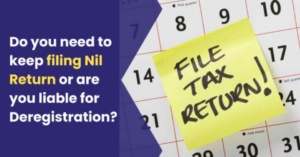
Understanding the Latest VAT Public Clarification on Cryptocurrency Mining in the UAE
The Latest VAT Public Clarification on Cryptocurrency Mining in the UAE The United Arab Emirates (UAE) is a global leader in innovation and technology, including
Home » What is UAE’s ‘economic substance law’ and what are the latest changes made in the new ESR Law in the UAE?
The UAE’s ‘Economic Substance Regulations’ have gained momentum again. While not a tax, it aims to determine that UAE entities undertaking ‘relevant activities’ have adequate ‘economic substance’ in the UAE, are directed and supervised, and have adequate assets, resources and qualified people in UAE.
Recently, significant changes were made to the ESR through cabinet resolution No. 57 of 2020 and ministerial decision 100 of 2020. The amended ESR is positive. and UAE businesses should take note of the amendments to reassess the implications and where they stand on compliance.
Inclusions Exclusions
Juridical Persons (Person with Separate Natural Persons
legal Personality) Sole proprietors
Unincorporated Partnerships Trusts and foundations That carry on a relevant activity in the UAE.
Following entities will be exempted licensees under the amended provisions:
Exempt entities must:
1.File a notification and
2. Provide sufficient documentary evidence to substantiate and benefit from their exempt
status.
Clarity has also been provided on businesses with multiple branches within UAE, for foreign branches of a UAE entity, and for entities that undertook the ‘relevant activities’ but did not earn any income.
Amongst other changes, it now covers purchasing of goods from a foreign-connected person as well as the reselling of such goods. Under the original ESR, coverage under the D&SC business required (a) purchasing of goods from a foreign-connected person; (b) importing and storing those goods in the UAE; and (c) reselling the goods outside the country.
With the removal of conditions (b) and (c), purchasing of goods from foreign group companies for international distribution typically referred to as “bill to-ship to” transactions, or for local distribution within UAE, would trigger ESR compliance. Another welcome change is the introduction of a concept of ‘group’ to identify foreign-connected person and link it with the requirements to prepare consolidated financial statements.
If you have shareholders in your small business, you know how important it is to show rather than tell. Accounting does just that.
Your shareholders hold you accountable for the success of your business. They can observe your business’s growth and success by looking at your accounting records.
On another note, accounting can also help you hold your employees accountable. Keep up-to-date on things like reconciling bank statements and performing trial balances. That way, you can catch fraudulent activity before it takes too much of a toll on your business.
A landmark change is the appointment of Federal Tax Authority (FTA) as the ‘National Assessing Authority’. In addition to VAT and excise tax, the FTA will undertake assessments to determine compliance with economic substance tests by the entities. The FTA will also be responsible for administrative penalties, appeal process and other prescribed functions.
The authorities will be responsible for collecting and review of information, assessment of exempt licensees and other prescribed functions. An online portal will be launched by the Ministry of Finance for submission of ESR notification/reports and other documents. Businesses will have to re-submit the ESR notification submitted earlier.
ESR notification and report should be submitted within six- and 12-months respectively, calculated from the end of financial year of the company that are typically December, March or June. It has been clarified that the board members (or equivalent) of the business need not be UAE resident, but must be physically present in UAE when taking strategic decisions.
Increased and stringent penalties for non-compliance could range from Dh20,000 to Dh50,000, further increasing to Dh400,000 and possible cancellation/suspension of trade license.
Considering that limited time is available to prepare a detailed ESR report and submit/resubmit ESR notification, it is strongly recommended that businesses reassess the implications under the amended ESR.
Alya Auditors serves businesses in the UAE with their experience in accounting. Experts will help them grow their business without having to combat challenges posed by inefficiencies in accounting tasks. We can also help entrepreneurs looking to start their dream business in the UAE. Get end-to-end accounting support coupled with the benefits of new-age technology that they use to boost your accounting tasks.
Apart from the above services we are also helping the companies and businesses in the UAE to file their ESR notification.
Learn more about Alya Auditors and its offerings.

The Latest VAT Public Clarification on Cryptocurrency Mining in the UAE The United Arab Emirates (UAE) is a global leader in innovation and technology, including

Auditing and Accounting for Crypto Companies in the UAE: A Comprehensive Guide The rapid growth of cryptocurrency and blockchain technology has transformed the global financial

Don’t Let New Year Festivities Overshadow Your Corporate Tax Deadline As the year winds down and holiday celebrations take center stage, businesses must stay mindful

What Makes Alya Auditors One of the Top Auditing Firm in Dubai? In Dubai’s highly competitive business environment, companies must align with stringent financial regulations
Truly, let us know what service you are looking for and hence we can get back to you with more details.
Silver Tower, Business Bay. PO Box: 41102, Dubai, UAE.
Sharjah Airport Free Zone PO Box: 120403 Sharjah, UAE.
+971 48769377
+971 52 9750690 , +971 50 522 1035
Mon – Fri : 8:30 AM – 6 PM
Saturday – 9 AM – 5 PM
Sunday – Closed
© Alya Auditors 2022 All Rights Reserved